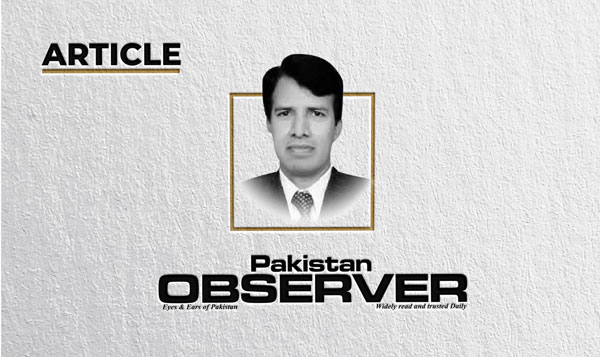The economic uncertainty in Pakistan
ANALYZING the current economic state of Pakistan, the Moody’s latest suggestions for Pakistan is that Islamabad needs very serious economic reforms and sound economic management, if it really desires to avoid the likely economic flop. It further analyzed that if the negotiations with the IMF succeed, the bailout package may not rescue the economic health of Pakistan. Besides, there are many other regional and international economic organizations that suggest major economic reforms in Pakistan. Moody’s analysis also includes that “Inflation in Pakistan could average 33 per cent in the first half of 2023 before trending lower, and a bailout from the International Monetary Fund (IMF) alone is unlikely to put the economy back on track.”
In an environment of economic uncertainty and highest inflation rate in the country, the Government has presented a mini-budget in Parliament on February 15, 2023. It is said that the huge taxes imposed in the mini-budget is a compliance of the conditions asked by International Monetary Fund (IMF). As presented by Mr Dar, Finance Minister of Pakistan, there is an imposition of Rs 170 billion taxes in various sectors while sales tax rate goes up to 18 per cent. After this mini-budget, Mr Dar and his financial team is likely to resume the negotiations with the IMF from 16 February 2023 with a view to finalize the ninth review of the Extended Fund Facility (EFF). How the people of Pakistan cope with new and heavy taxation is yet another question. Then there is a huge price increase of petroleum and other means of energy alongside the mini-budget.
It is worth mentioning that while there have been visible indicators of economic down-fall of Pakistan over the last 4-5 years, the governments did not take needed measures to stop it by taking workable actions. In May 2022, Prime Minister Sheahbaz Sharif announced a ban on the import of luxury items which was revoked under the pressure of the elite class. One of the reasons for the devaluation of Pakistani Rupee compare to USDs is hefty and uncontrolled imports of costly items which are being used only by 5% rich people of Pakistan (the elite’ class). These imports are generally out of the reach of over 95% masses of Pakistan. A simple calculation would reveal that 5% elites (rich people) of Pakistan are responsible for causing the devaluation of Pakistani currency which badly impacts the life of 95% middle/lower middle class of Pakistan.
In the last few years, there is an increase in poor class in Pakistan, who find it extremely difficult to make their both ends meet. The process is continuing unabated, since elites are unscathed even at the time of the economic crisis of Pakistan. These elites include the ruling class and their abettors, who are instrumental to bring the political elite into power (indeed, the king makers). They later use the ruling elite for their nefarious designs which go against the interests of the state and masses alike. These elites decide the fate of the country to their best interests rather than the interest of Pakistan and its over 95% masses. They laugh at poor and their poverty, since they (poor) still run behind their luxury vehicles at the times of elections and once they visit their constituencies for the fake future promises to further enslave the masses.
Indeed, not the resources but the poor economic management is considered to be the real cause of deteriorating economy of Pakistan and falling living standards of its 220 million population. In fact, the basic responsibility of the government was to identify and prioritize the problems facing the state and society of Pakistan. Identifying the problem areas at an early time-frame and focusing to resolve them by all possible means and through better economic management could have saved the state and society from ongoing economic crisis. But, neither the problems identified nor any serious efforts were made to overcome the economic crisis, hurting the state and society alike. Resultantly, once confronted by financial challenges, they resorted to rush to the IMF and mini-budget. The GDP growth rate for fiscal 2017-2018 was over 4.5% which means it was better economic management until 2018. The exchange rate of PKR versus US Dollar is almost 1 USD=275 PKR, unbelievable, highest in the history of Pakistan. It remained almost constant (1USD-Rs 100) from 2013 to 2018.
In order to save the country from economic default, the incumbent Government must ban the import of luxury items immediately. Besides, all ministers, bureaucrats and all government functionaries must be directed to ensure austerity measures even within their authorized perks and privileges. The huge fleets of vehicles with heavy POL consumption must be reduced to minimum and luxuries of the officials must be stopped forthwith. If despite alarms, the Government officials still opt to have luxurious way of life then, the Government must reconcile its way of governance.
The Government must stop the policy of political appeasement and compromises on national issues to compensate the allies. It must bring immediate political stability and a state of certainty in the country. Let there be political stability and certainty in the country which is essentially needed for the economic permanency. The national institutions must play a decisive role towards stability of the country by ending the chaotic situation. Indeed, there is a thin wall between the economic meltdown of Pakistan or otherwise by taking strict economic measures at the national level.










